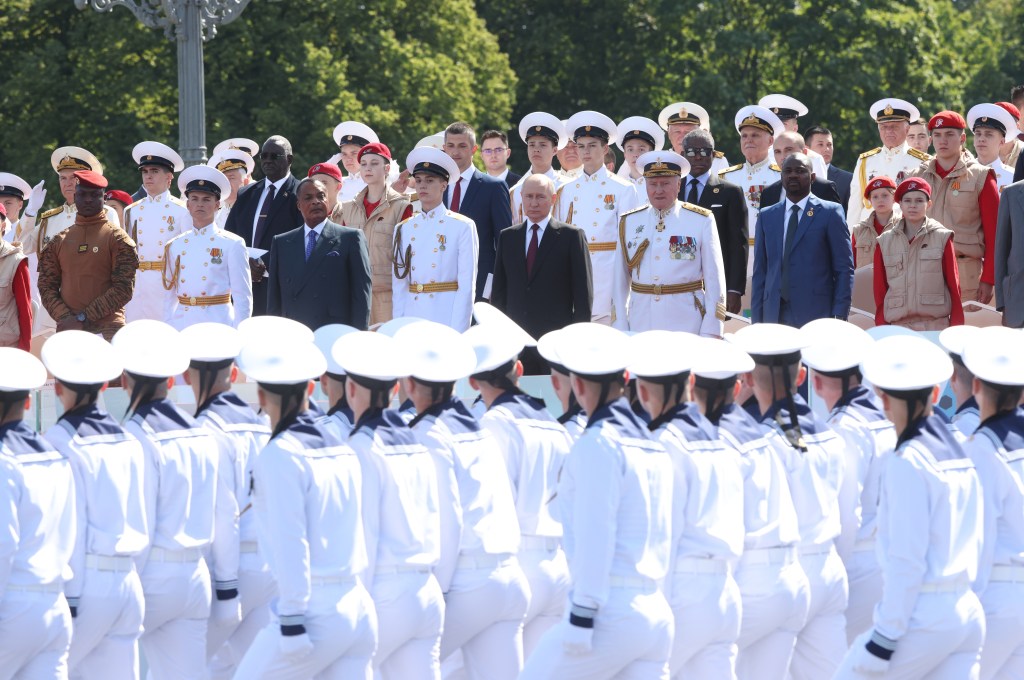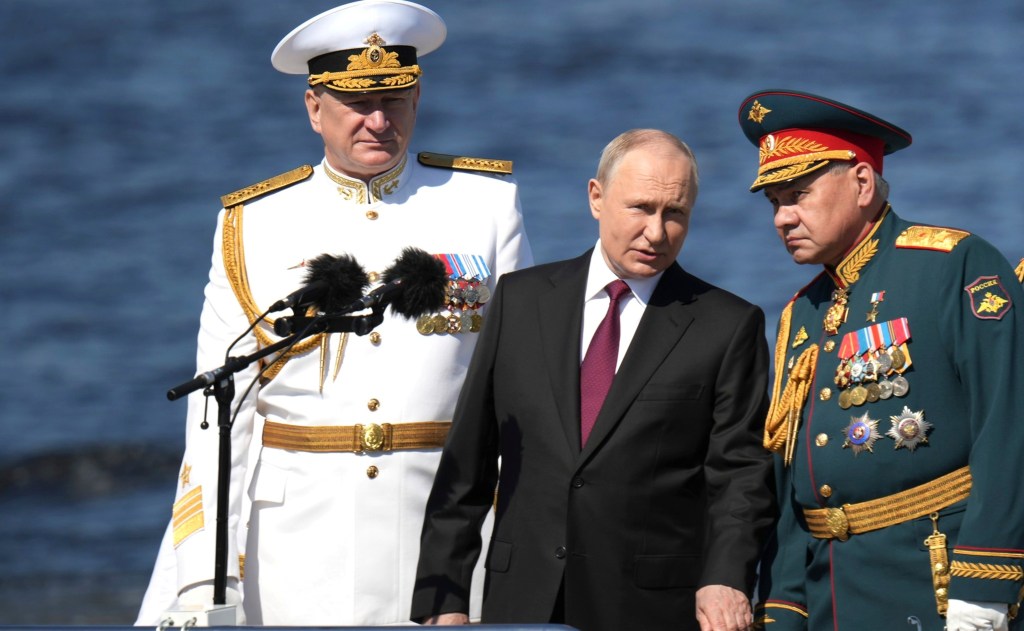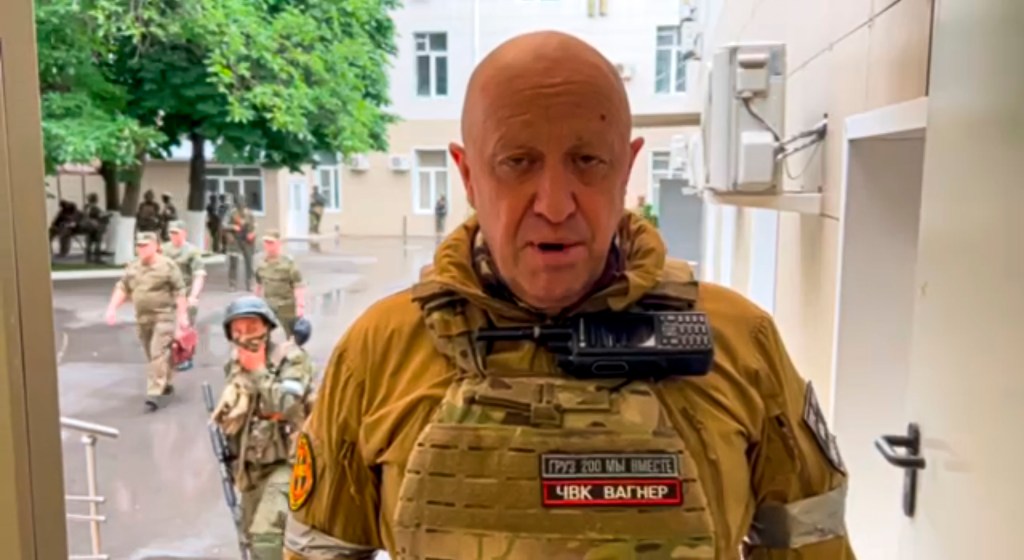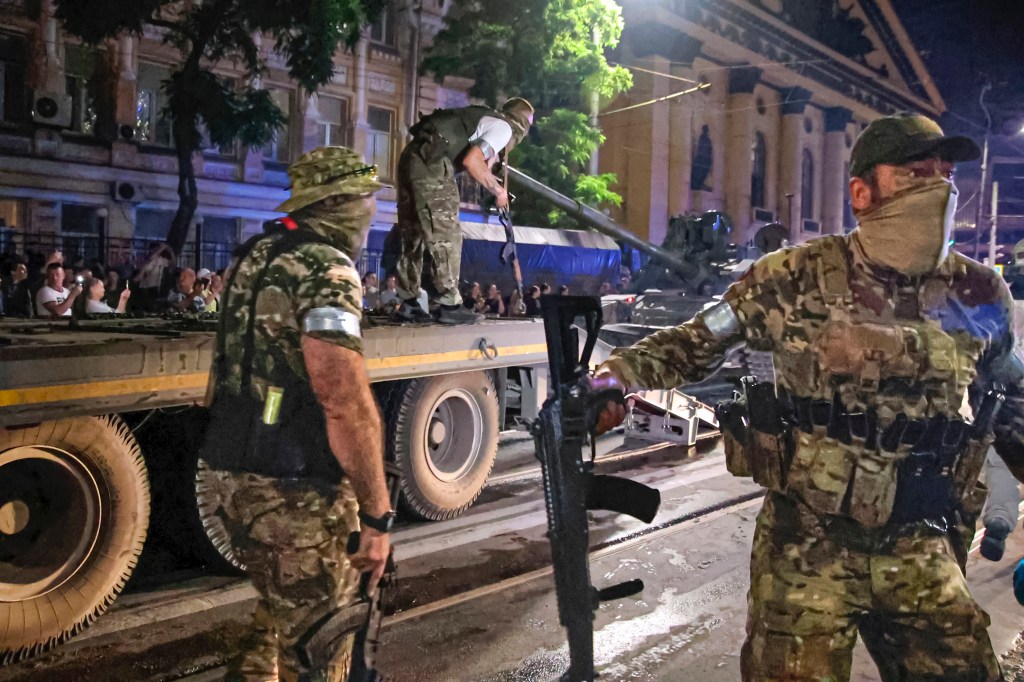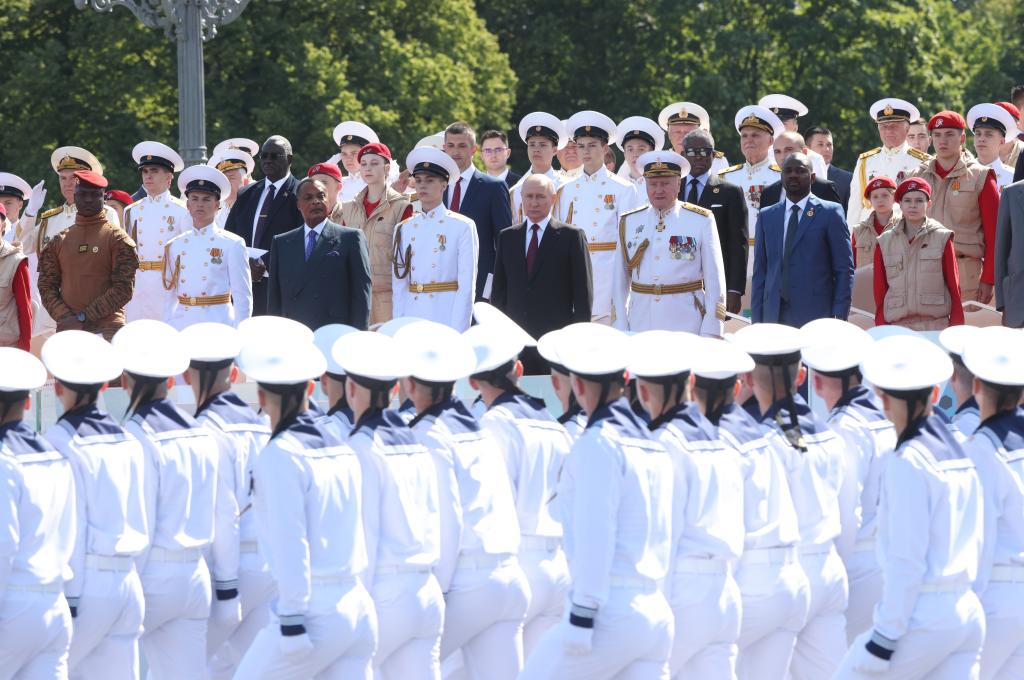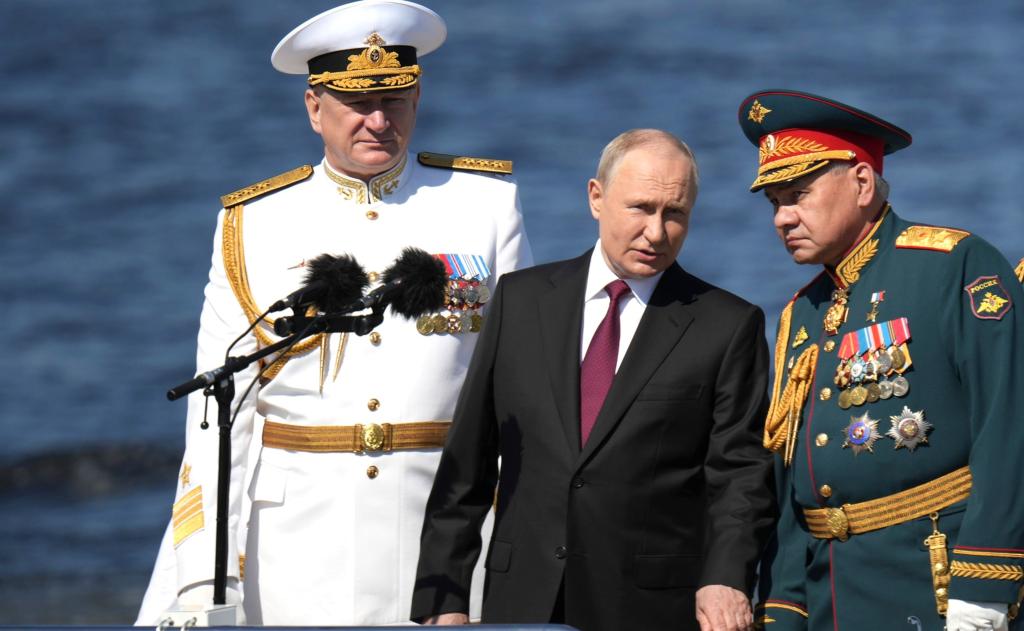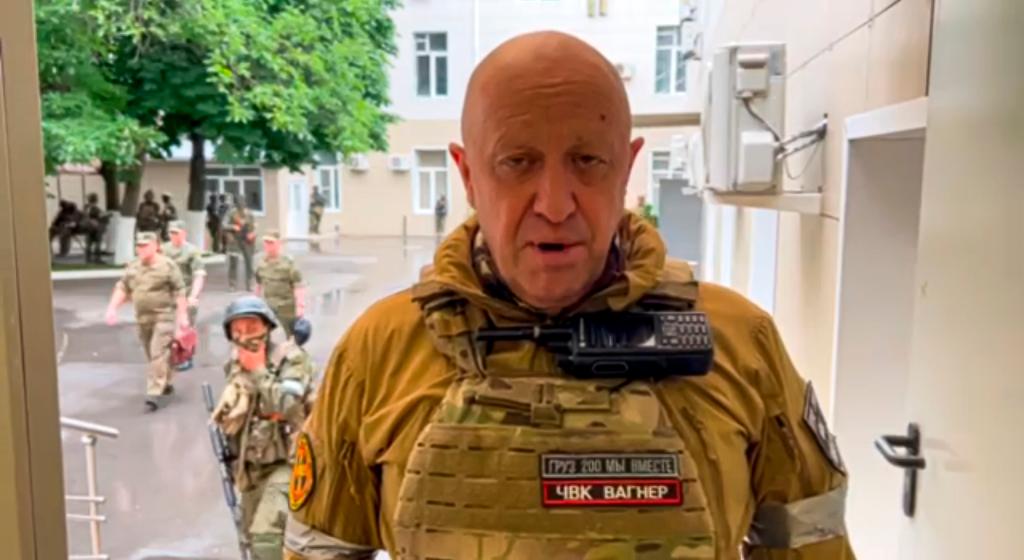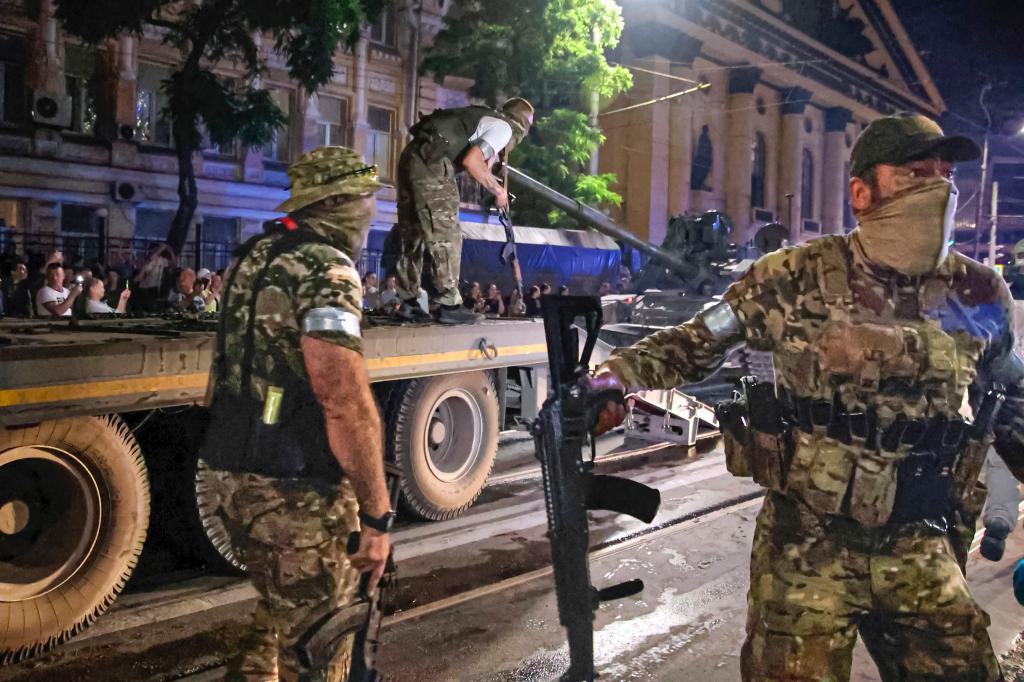Russia courts new militias as Wagner group takes pause
The Kremlin is seeking to authorize the creation of new paramilitary companies as Russia’s private Wagner military company said it would scale down its operations following a failed mutiny, in an apparent attempt to protect President Vladimir Putin’s regime from another uprising.
A purported recording of Wagner leader Yevgeny Prigozhin posted on Telegram Monday signaled that the mercenary group would pause recruitment and focus on activities in Africa and Belarus, according to the New York Times.
“As long as we don’t experience a shortage in personnel, we don’t plan to carry out a new recruitment campaign,” the recording reportedly said.
“As soon as the motherland would need to create a new additional group that would be able to defend the interests of our country, we would begin recruiting.”
The new messaging came after the Kremlin-funded paramilitary group staged an armed march toward Moscow in June, a rebellion against the Russian Ministry of Defense for its handling of the war in Ukraine.
Prigozhin turned his forces around after brokering a deal with Russian ally Belarus to end the rebellion in exchange for immunity, and rejected an offer from Putin to let his group continue fighting in Ukraine under new leadership.
Russia had depended on the private military company to bolster its unprovoked invasion under a tacit agreement that allowed for plausible deniability. In the aftermath of the attempted uprising, Putin bizarrely denied the very existence of the unit — which posed the biggest threat to his authoritarian rule since his rise to power in 1999.
As Prigozhin adopted a new non-threatening tone and largely hid from public view, it was revealed that the Kremlin was paving the way for new paramilitary companies to emerge.
Cryptic amendments in Russia’s new proposal to raise the draft age to include men up to the age of 30 allowed for new armed groups, or “special enterprises,” to protect Russia’s border, maintain public order and counter uprisings, the Daily Beast reported.
Under the language of the measure, the companies would operate at Putin’s behest while being run by regional governors and funded by the Ministry of Defense, according to the report.
Experts say the measures are in direct response to the newly exposed vulnerabilities in the Kremlin’s power — which have also been exposed on the world stage by Russia’s failure to conquer the former Soviet territory Ukraine and squash counteroffensives from the much smaller sovereign nation as its war entered its 18th month.
“This still shows brittleness in the regime. There are cracks all over the place,” Don Jensen, a former American diplomat who served at the US Embassy in Moscow, reportedly said.
“This is done to reinforce the security of the regime.”
Under the new measure — which is expected to be rubber-stamped by lawmakers — the special military groups won’t be able to use force against crowds, unless there is “group resistance,” the outlet said.
They would be allowed to fight unmanned drones and airstrikes, signaling that the groups would be utilized to defend Ukrainian attacks on Russian soil, which have ramped up of late.
“Employees of enterprises have the right to stop the operation of unmanned aerial, underwater and surface vessels and vehicles, unmanned vehicles and other automated unmanned systems in order to repel an attack,” the proposal reportedly read.
In addition to replacing Wagner’s supplemental war efforts in Ukraine, Putin could use the militias to protect against future coups, observers said.
“They are a tool to enhance security, and can, as necessary, help against any new mutiny,” Nikolai Sokov, who previously worked at the Ministry for Foreign Affairs of the Soviet Union and Russia, told the outlet.
The proposed new rules would also allow Putin to abolish at a moment’s notice any groups that grow too powerful, and force them to turn over their arms, according to Karolina Hird, a Russia analyst at the Institute for the Study of War.
“They need these kind of entities to fill certain law enforcement and security roles in Russian regions, but these entities cannot be so centralized and powerful that they become their own Wagner group and then pose a threat to the Russian state akin to what Wagner posed during the rebellion,” Hird told the outlet.
Even with the precautions, it was unclear if the groups would remain loyal to the Kremlin, and if their formation could come back to bite the regime.
“It’s almost a feudalization of the system … which I don’t think personally is good for Putin,” Jensen added.








